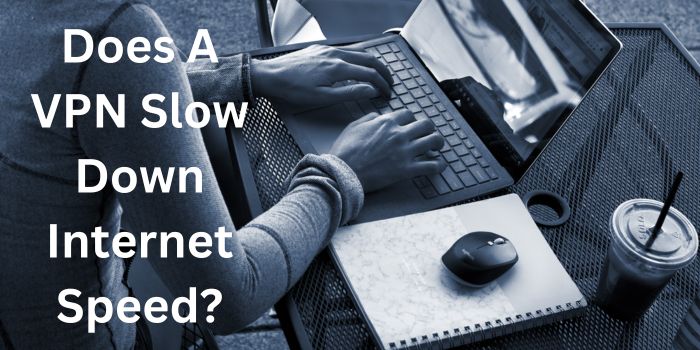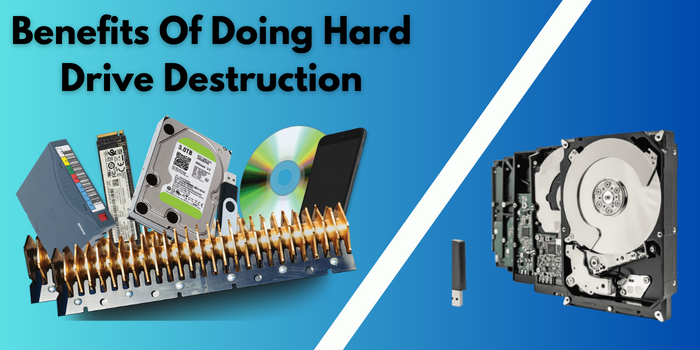
Does A VPN Slow Down Internet Speed?
Are you tired of your internet speed being painfully slow when using a VPN? You’re not alone! Many users experience this frustrating issue, leading them to question whether it’s worth sacrificing their online security for faster browsing.
In this blog post, we’ll explore the factors that contribute to VPNs slowing down internet speed and provide tips on how to improve your browsing experience while maintaining your privacy. So, let’s dive in and answer the burning question: Does a VPN Slow Down Internet Speed?
What Factors Contribute To VPNs Slowing Down Internet Speed?
There are several factors that can contribute to VPNs slowing down internet speed. The primary factor is the encryption process used by VPNs to protect your online activity. Encrypting and decrypting data takes up significant bandwidth, which inevitably slows down your connection.
Another factor is the distance between you and the VPN server you’re connected to. If the server is far away from your physical location, it will take longer for data packets to travel back and forth, leading to slower speeds.
Your device’s hardware configuration also plays a role in how much of an impact a VPN has on internet speed. Older devices or those with less powerful processors may experience more significant slowdowns than newer models.
Additionally, high levels of network congestion at peak times can cause slow speeds when using a VPN. This happens because many users are connecting through the same servers simultaneously, creating bottlenecks that affect overall performance.
Understanding these factors can help you optimize your browsing experience while using a VPN. By taking steps such as choosing servers closer to your physical location or upgrading your device’s hardware, you can mitigate slowdowns caused by these factors and enjoy faster connections without sacrificing privacy!
If you will use a VPN that has fast speed server then it will be contribute less in slowing down internet speed. ExpressVPN is recommended VPN that slows your internet speed by a small fraction. With Bongino ExpressVPN discount, you can get this ultra-fast VPN at small price & suffer less slowing down in speed.
How Can I Test The Impact Of A VPN On My Internet Speed?
Testing the impact of a VPN on your internet speed is essential to determine whether it’s worth using or not. Several factors can affect the performance of a VPN, including server location, encryption level, and network congestion.
To test the impact of a VPN on your internet speed, start by running a speed test without connecting to the VPN. This will give you an idea of your baseline internet speeds. Next, connect to the VPN and run another speed test while still connected.
Compare both results and note any significant changes in download and upload speeds as well as ping times. If there’s too much difference between both tests’ results, then it means that your VPN may be slowing down your connection.
It’s also important to perform these tests at different times during the day since network traffic can fluctuate depending on various factors such as peak hours or local events.
By testing how effective your VPN is at protecting online privacy while maintaining fast internet speeds will help ensure optimal performance for all online activities like streaming video content from around the world or downloading large files securely with ease.
Is It Normal For VPNs To Cause A Slow Down In Internet Speed?
It is common for VPNs to cause a reduction in internet speed due to the nature of how they work. When you use a VPN, your data has to travel through an additional server before reaching its destination. This extra step can result in slower speeds because the server may be located far away from your physical location.
However, not all VPNs are equal when it comes to slowing down your internet speed. Some providers have optimized their servers and networks specifically for faster connections while others may prioritize security over speed.
Another factor that can contribute to slow speeds is the encryption used by the VPN. Stronger encryption methods require more processing power which can lead to reduced speeds. However, many modern VPN protocols use efficient encryption algorithms that strike a balance between security and speed.
Ultimately, some degree of slowdown is normal when using a VPN but it should not be significant enough to affect your browsing or streaming experience unless you have very slow internet already. If you notice significant drops in performance with specific servers or during certain times of day, try switching servers or contacting your provider’s customer support for assistance optimizing your connection.
How To Improve Internet Speed While Using VPNs?
If you are experiencing slow internet speeds while using a VPN, there are certain steps that you can take to improve your connection. Firstly, try connecting to a different server location within the same VPN network. This may help in finding a more stable and faster connection.
Another important factor is the protocol being used by the VPN service provider. For instance, OpenVPN tends to be slower than other protocols such as WireGuard or IKEv2/IPSec. Therefore, switching between different protocols can also drastically improve your internet speed.
If none of these solutions work for you, it might be time to upgrade your current internet plan with your ISP (Internet Service Provider). A higher bandwidth will ensure that data travels faster through the network which in turn improves connection speed.
Additionally, make sure no other applications on your device are consuming excessive bandwidth whilst using a VPN as this will cause slower speeds. Close any background apps and unnecessary browser tabs before connecting to the VPN.
To improve your internet speed while using a VPN, it’s important to be patient and willing to experiment with different settings. You can also consider using a VPN like Youtubers Sponsored By Surfshark, which offers features designed to optimize speed and performance. Additionally, make sure to choose a VPN server that’s located close to your physical location to minimize latency.
Can The VPN Server Location Affect Internet Speed?
The location of the VPN server can significantly affect internet speed. When you connect to a VPN server that is far away from your physical location, it will take longer for data to travel between your device and the server. This extra distance results in increased latency, which can slow down your internet speed.
Furthermore, some countries have better infrastructure than others, meaning that their servers are more reliable and faster. If you’re using a VPN with a server located in a country with poor infrastructure or slower networks, it could negatively impact your internet speed.
It’s also essential to note that some VPN providers offer specialized servers designed explicitly for streaming or P2P sharing. These servers may not be available in all locations and may only be accessible through specific plans or subscriptions.
Therefore, choosing the right location for your VPN server is crucial when trying to minimize any slowdowns caused by using one. Make sure to select a server closest to you geographically with robust infrastructure for optimized browsing speeds while still enjoying secure browsing anonymously via the virtual private network service provided by your preferred provider.
Is It Possible For VPNs To Increase Internet Speed?
One common misconception about VPNs is that they always slow down internet speeds. However, it’s possible for VPNs to actually increase internet speed in some cases.
Firstly, if you’re experiencing a lot of ISP throttling, using a VPN can help bypass those restrictions and improve your overall internet speed. This is because the encrypted connection provided by the VPN hides your online activity from your ISP, preventing them from slowing down certain types of traffic.
Another way that VPNs can potentially increase internet speed is through server location. If you connect to a VPN server that’s physically closer to the website or service you’re accessing, it could result in faster load times and improved overall performance.
However, it’s important to note that these benefits are not guaranteed and there are also potential downsides such as increased latency due to routing through an additional network. It ultimately depends on individual circumstances and testing should be done before making any conclusions about whether a specific VPN improves or hinders internet speed.
Is It Normal For VPNs To Slow Down My Internet Speed?
Yes, it is normal for VPNs to cause a slight decrease in your internet speed due to encryption protocols and server distance.
Can I Test How Much My VPN Slows Down My Internet Connection?
Yes, you can use online speed tests like Ookla or Speedtest.net before and after connecting to your VPN service provider.
Conclusion
Using a VPN can slow down internet speed due to various factors such as encryption and server location. However, it is important to note that the extent of the slowdown depends on your original internet speed and the quality of your chosen VPN provider.
To minimize any potential impact on internet speed, you should choose a reputable VPN provider with optimized servers for faster connection speeds. You can also try connecting to a nearby server location or upgrading your internet plan for better performance.
While there may be some trade-offs when using a VPN to protect your online privacy and security, the benefits far outweigh any potential drawbacks. By taking steps to optimize your setup and choosing a reliable service, you can enjoy fast and secure browsing without compromising on either aspect.



